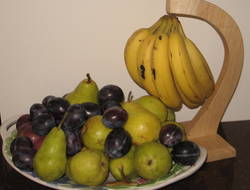Stress, physical activity, and nutrition.
Published: October 18, 2019
Are you feeling stressed? What does feeling “stressed” or “stressed out” mean to you?
Possibly you feel anxious about something, not enough time in the day to get things done, deadlines looming at work or school, planning a wedding, dealing with children/parents, being late for..., and your performance at...whatever.
Stress is defined as any event that threatens your well-being and requires your body to adapt. Such events or demands are known as stressors.
Anxiety can be an emotional response to stressors such as those described above, everyday occurrences which negatively, or appear to negatively impact your day.
These psychological stressors are also referred to as psychosocial stressors, and also include life changing events such as deaths of relatives and friends, divorce, and financial problems.
You also experience environmental stressors such as noise, temperature changes, and changes in weather. In the course of your day you may encounter stairs or hills, overcrowded transport, elevators, and shopping malls, and broken sidewalks.
Other physical stressors include alcohol and drug abuse, smoking, pain and illness, and injury. What and how you eat can also stress your body.
Some stress is essential to your wellbeing: in fact if you were not stressed in some way you may not be able to function properly.
In addition to emotional and physical stress, you also experience physiological stress (stresses that occur within your body). Physiological tension is necessary and present all the time as your body adjusts to your environment (both physical and psychological).
For example:
- as you get out of bed in the morning and your muscles adjust from lying down to standing up
- when you consume food and your body responds by activating all the metabolic processes necessary for digestion
- to keep you awake, alert and ready to respond
- different types of mental activity: to enable thinking!
The downside is that too much tension/stress can adversely affect your mental and physical health as everyone has an optimal stress level or perhaps balance of “distress” and “eustress”.
Eustress, stress that your body can adapt to, is often thought of as pleasurable stress...link to the full article to learn more.
References
1.
Corbin, C.B. & Lindsey, R. (1994). Concepts of Physical Fitness. Dubuque, IA: Wm. C. Brown Communications Inc.
2.
Whitney, E. & Rady Rolfes, S. (2005). Understanding Nutrition. Belmont, CA: Thomson Wadsworth
3.
Advanced nutrition: Laboratory data in Nutrition Carlson, TH. In Mann. K. & Escott-Stump, S. (Eds.)(2004). Krause's Food, Nutrition & Diet Therapy. (11th Ed.) Elsevier


